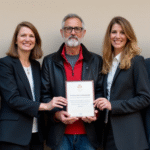Background on Donald Trump and His Relevance
Donald Trump, the 45th President of the United States, served from January 2017 to January 2021. Known for his controversial policies, Trump’s administration took a hardline stance against Cuba, intensifying an already decades-long trade embargo.
Trump’s Policy Adjustments During His First Term
During his first term, Trump tightened the existing embargo on Cuba by reinstating restrictions on travel and financial transactions with entities controlled by the Cuban military, particularly Gaesa. This move was influenced by Marco Rubio, Trump’s Secretary of State, who has been vocal about his disapproval of any relaxation in policy towards Cuba.
Reversal of Biden’s Policies
Upon returning to power in January, President Trump reversed some of the policies implemented by his predecessor, Joe Biden. Biden had removed Cuba from the list of countries sponsoring terrorism and eased travel restrictions, actions that Trump now undoes.
“Robust Policy” Details
According to the White House, Trump’s recent memorandum “restores and strengthens the robust policy towards Cuba from his first term.” The U.S. government aims to end economic practices that disproportionately benefit the Cuban government and military at the expense of the Cuban people.
- Direct or indirect financial transactions with entities controlled by the Cuban military, such as Gaesa and its affiliates, are now prohibited.
- Exceptions exist for transactions that benefit the U.S. or support the Cuban people.
Gaesa is a state-owned holding company controlling numerous companies, dollar stores, warehouses in the Mariel port (Cuba’s most significant port), and financial institutions like Rafin. It also oversees Gaviota, managing more than 50 hotels, five yacht marinas, restaurants, airlines, car rentals, and taxi services. Additionally, Gaesa controls the Cimex Corporation, which manages 80 companies across various sectors of the Cuban economy.
Travel and Economic Embargo
Trump’s memorandum reaffirms the U.S. economic embargo on Cuba and maintains the “wet-foot, dry-foot” policy’s termination. This policy allowed Cuban immigrants to stay in the U.S. if they reached U.S. soil, but it was ended in 2017.
Going forward, the Republicans will ensure strict compliance through regular audits and mandatory transaction records for at least five years.
“Criminal Conduct” Criticism
Cuba’s Foreign Minister, Bruno Rodríguez, described the memorandum as “criminal and a violation of human rights” in a tweet. He also stated that it poses the primary obstacle to Cuba’s development.
Conversely, Trump pledges to support the Cuban people by expanding internet services and fostering an independent private sector. The memorandum also orders a review of human rights abuses in Cuba.
Marco Rubio: “We will hold the illegitimate Cuban regime accountable and support the Cuban people in their pursuit of freedom and justice.”
Key Questions and Answers
- Q: Who is Donald Trump? A: Donald Trump was the 45th President of the United States, serving from January 2017 to January 2021.
- Q: What is the current US policy towards Cuba under Trump? A: Trump has reinstated a strict policy against Cuba, tightening the trade embargo and restricting travel and financial transactions with Cuban military-controlled entities.
- Q: What is Gaesa? A: Gaesa is a Cuban state-owned holding company controlling numerous businesses, including hotels, marinas, and financial institutions.
- Q: How does Trump’s policy differ from Biden’s? A: Biden had eased travel restrictions and removed Cuba from the list of countries sponsoring terrorism, while Trump reversed these actions.
- Q: What is the “wet-foot, dry-foot” policy? A: This policy allowed Cuban immigrants to stay in the U.S. if they reached U.S. soil, but it was terminated in 2017.






